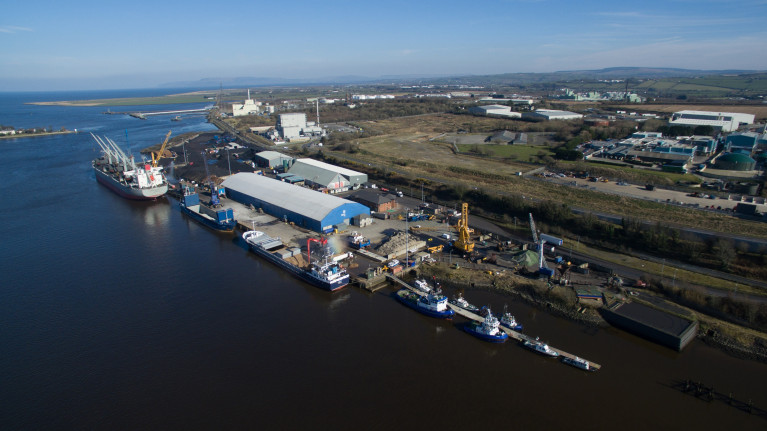Displaying items by tag: Strike Action
Dover-Calais Operators’ DFDS and P&O Ferries Advise Passengers During Calais Port Workers’ Strike
Strait of Dover ferry sailings to Calais are being affected by strike action in France today, (14 Dec.) an operator has warned.
The Danish company, DFDS says because of the effect on the Dover-Calais route, it is offering sailings on their alternative route to northern France, Dover-Dunkirk.
French workers began the strike action and is expected to last 24 hours.
Commenting on the strike, a DFDS spokesman said: “Strike action by port workers in Calais is affecting sailings on DFDS' Dover-Calais route today.
P&O say on X that its sailings from Dover up to 3.25pm are running on time so far but advise passengers to continue checking tweet feeds.
More from KentOnline on the disruption.
As for the third ferry operator, Afloat adds on the UK-France link, Irish Ferries, which at time of writing, is not disrupted according to the company’s website with information on sailing updates.
Ferry Crew of New Isle of Man Flagship to be Balloted Over Strike Action
Ferry crew working for the Isle of Man Steam Packet, BBC News reports are to be balloted on whether they would support strike action in a row over employment conditions.
Seafarers who are members of the trade union, Nautilus International will be balloted over plans to impose live on-board conditions on the new flagship Manxman operating Douglas-Heysham. The route is the island’s main year-round link connecting the Manx capital and Lancashire in north-west England.
Nautilus said the changes of having to live-on board the £78m flagship, would see employees lose 76 days a year with friends and family.
In response the Manx Government owned ferry operator said it was disappointed with the latest move.
Proposals from the ferry firm would see crew live on-board the 948 passenger capacity Manxman rather than go home to rest between shifts to and from Heysham for the first time in more than 20 years.
The operator of the 24,161 gross tonnes flagship, also said it would therefore be able to respond more flexibly to travel disruptions and bad weather, which is a claim the union said was "misleading".
More here on the development.
At the UK's biggest container port in Felixstowe, workers are to strike for eight days in a dispute over pay.
Around 1,900 members of the union, Unite will walk out on 21 August after rejecting a 7% pay offer from Felixstowe Dock and Railway Company.
Unite called the pay offer "significantly below" the rate of inflation.
The announcement comes after a summer of strikes in the transport sector as the cost of living continues to rise.
A Felixstowe port spokesperson said the company was "disappointed" and that it was "determined" to help workers tackle rising costs - whilst continuing to invest in the port.
Unite said eight days of strike action at the port will run from Sunday 21 August ending on Monday 29 August.
Unite general secretary Sharon Graham said: "Both Felixstowe docks and its parent company CK Hutchison Holding Ltd are both massively profitable and incredibly wealthy.
"They are fully able to pay the workforce a fair day's pay. The company has prioritised delivering multi-million pound dividends rather than paying its workers a decent wage," Ms Graham added.
As BBC News has more on the Port of Felixstowe that handles around half of the UK's containers that are transported via the port.
Afloat adds it is just over a year ago when the English east coast port saw the Ever Given finally arrive after having blocked the Suez Canal that caused major disruption to global shipping and knock on impacts on supply-chains.
Some Workers at Foyle Port Take Strike Action Over Pay
Some members of the trade union UNITE said the strike is expected to significantly affect operations at Foyle Port.
The union said the dispute centres on a rejected demand for a 2.1% pay rise this year, following a pay freeze.
Foyle Port said average remuneration for employees last year was 58% above the median annual earnings for the local council area.
Unite said that almost every worker at the port and their families were "struggling to make ends meet and now face a second year of poverty pay".
Foyle Port said the Unite statement "does not accurately reflect the context of the ongoing dispute with a minority of employees at Foyle Port".
The spokesperson added that they "wholly reject the loaded term 'poverty pay', as referenced in the union's statement" and said they have "consistently paid inflationary rises over many years".
On Monday morning, between 25 and 30 Unite members were at a picket line at the port.
BBC News has further coverage of the dispute.





























































